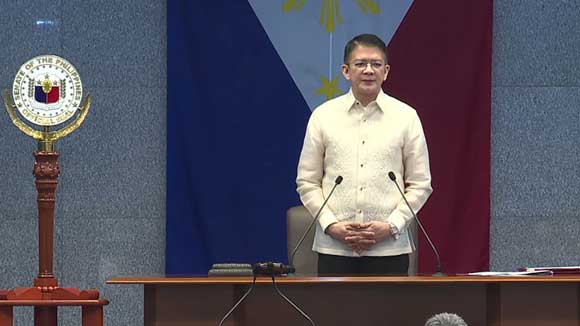President Ferdinand Marcos Jr. has ordered lifestyle checks on government officials, starting with the Department of Public Works and Highways (DPWH) as part of anti-corruption moves by the administration amid mounting allegations of irregularities in flood-control projects.
Infrastructure is one of the biggest line items in this year’s spending plan: the government earmarked P1.507 trillion for public works and related projects in 2025, equivalent to about 5.2 percent of GDP.
DPWH’s appropriations exceed P1 trillion, underscoring how governance lapses in roads, bridges and flood works can ripple through logistics costs, urban productivity and balance sheets across the economy.
In a Palace briefing on Wednesday, Press Officer Claire Castro said the directive instructs oversight bodies—including the Commission on Audit, Bureau of Internal Revenue, Bureau of Customs and local governments—to intensify checks on the lifestyles of government officials, with DPWH officials linked to questionable projects first in line.
The order complements continuing audits of agency records tied to allegedly anomalous contracts.
The push follows a surge of public complaints routed through sumbongsapangulo.ph.
As of 9 am on August 27, Malacañang had logged 9,020 reports, prompting the President to personally inspect 11 flood-control projects in Marikina, Iloilo, Bulacan and Benguet.
Those site visits will inform case-building and potential charges, the Palace said.
Stabilize business operations
For capital markets and operators, the fiscal stakes are clear.
Within the “economic services” slice of the enacted budget, water resources development and flood control alone account for P308.3 billion, while transport networks are allotted P899.0 billion—resources meant to cut delivery times, stabilize business operations during heavy rains and reduce inventory losses. Every peso lost to graft is a peso not lowering logistics and insurance costs.
The scrutiny lands after years of surging allocations for flood works. From 2023 to 2025, DPWH booked roughly P980.25 billion for flood-control projects, according to media tallies—money that, if misdirected, erodes the returns government and private contractors alike are expected to deliver.
Officials also face political pressure to show credible enforcement. Baguio City Mayor Benjamin Magalong has said as many as 67 lawmakers are linked to questionable flood-prevention items, a claim the Palace has challenged even as it signaled openness to a dialogue on documents he submitted.
The president has likewise entertained discussions with Batangas Rep. Leandro Leviste, who has reported a P3.13-million bribe attempt by a DPWH district engineer tied to a congressional probe.
Test internal controls
The lifestyle-check order is designed to test internal controls inside agencies as much as it is to deter graft and bid-rigging.
While each office is expected to investigate its own personnel, the Palace said results would be weighed against audits and Ombudsman actions to avoid whitewashing and to keep market confidence in procurement outcomes intact.
For businesses, the near-term read-through is operational rather than abstract: better-governed flood defenses mean fewer weather-related shutdowns, steadier foot traffic and less damage to facilities and inventory; cleaner road and bridge contracts translate into more reliable delivery schedules.
For households, the payoff is safer communities and less disruption to work and schooling when heavy rains hit.
The broader message to the private sector is that enforcement will run alongside spending.
With infrastructure outlays set at multi-trillion-peso levels and public works sitting among the largest budget lines, the administration’s ability to plug leakages will help determine whether the intended productivity gains—and the lower cost of doing business—actually materialize.





